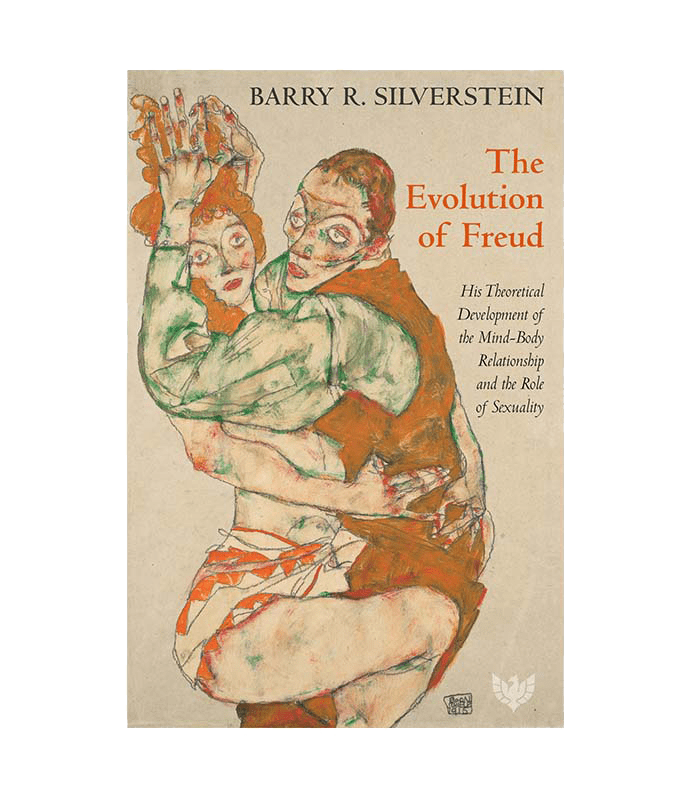Renowned Freud scholar Barry R. Silverstein presents in a historical context an overview of the development of Freud’s theories. What was Freud thinking, when, and why, and what were the major influences which shaped his ideas? The book follows the inner movement of Freud’s theory construction, its meaning and coherence, as well as his conceptual logic and personal directions concerning his evolving views of the reciprocal interactions between mind and body, the motivational force of instinctual drives, and the dominant role of sexuality rooted in evolutionary biology in human development, behaviour, and the creation of neurotic disturbances. It also follows Freud’s construction and sequential reconstructions of his theoretical models concerning the nature, dynamics, and principles of unconscious mental functioning, including his changing concepts on the nature and purpose of dreams. The book traces his changing views on the role of deferred action of early childhood experiences, the determining role of unconscious fantasy, and psychic reality in the formation of adult character structure and neuroses. Through such historical analysis, The Evolution of Freud provides grounding for a meaningful understanding of Freud’s familiar concepts: id, ego, superego, and the Oedipus complex. It explores what these concepts meant to Freud, why he conceived them, and what functions they served in his theory of mind.
This is the perfect book for students and trainees wanting to learn more about the development of Freud’s ideas, as well as for established psychoanalysts and psychotherapists interested in expanding their knowledge of Freud’s theories.






Judith M. Hughes, author of From Freud’s Consulting Room: The Unconscious in a Scientific Age –
‘The Evolution of Freud provides an accessible review of Freud’s thought. Barry R. Silverstein situates Freud in the late nineteenth century, elaborating on the intellectual and scientific teachings Freud encountered as a student and young physician. From there, he traces how Freud created a discipline, and therapeutic practice, designed to explore unconscious meaning.’
Daniel S. Benveniste, PhD, Honorary Member of the American Psychoanalytic Association and author of The Interwoven Lives of Sigmund, Anna, and W. Ernest Freud: Three Generations of Psychoanalysis –
‘Professor Barry R. Silverstein’s The Evolution of Freud is an adventure into Sigmund Freud’s thinking about the mind–body relationship and the role of sexuality in the structure of the psyche. He doesn’t just tell us what Freud thought he tells us how Freud thought. Silverstein includes the medical–intellectual context within which Freud was educated and pursued his interests, and also the way Freud thought about one problem after another in search of answers that would open doors to understanding the human psyche. Silverstein shows us how Freud struggled to understand psychiatric problems, theoretical conflicts, and all the new questions they raised. We witness Freud’s struggle to make sense of phenomena for which no previous theoretical concepts existed and his courageous efforts to find a way to create a comprehensive theory of the mind that future generations could develop and extend. Silverstein reminds us of the popular critiques regarding Freud’s cocaine use, sexism, intolerance, possible affair with his sister-in-law, lack of a scientific method, and so on, but, after spending four decades studying Freud’s work, Silverstein also appreciates (1) the “continuing relevance and application” of Freud’s ideas and concepts, (2) the significant scientific legacy he left in understanding how dynamic unconscious processes could affect cognitive functions, and (3) the powerful and clinically useful understanding of repetitive behavior patterns in human relationships – the repetition compulsions. In agreement with Silverstein, I would say yes, we all have our foibles but few of us write twenty-three volumes of enduring creativity to illuminate the human soul.’
Professor Brett Kahr, from the Foreword –
‘In my estimation, Silverstein’s book … may well be one of the very best means of encountering Freud and engaging with his life and work. Moreover, this text will be of value not only to new students but, also, to old friends as well, as each of us still has so very much to learn about the progenitor of modern global mental health.
‘I congratulate Professor Silverstein on this outstanding and, indeed, loving achievement, and I recommend this book most warmly to us all.’
James William Anderson, PhD, Professor of Clinical Psychiatry and Behavioral Sciences, Northwestern University; former President of the Chicago Psychoanalytic Society –
‘It is invaluable to know about Freud’s work. Even those who may disagree with much of it cannot understand contemporary psychoanalysis without appreciating the ways virtually all of post-Freudian psychoanalysis is a reaction to, an elaboration of, or an attempted improvement on Freud. But few people will be able to study and master the twenty-four volumes of his collected writings. The Evolution of Freud provides just what is needed: a profound, perceptive, penetrating presentation of the development of Freud’s thinking in an accessible, readable book.’
Amazon user: David E. Joseph –
5-Stars: Freud’s intellectual journey illuminated
‘As a longtime follower of Freud’s intellectual journey generally and of Professor Silverstein’s insightful contributions to this field specifically, it is with great enthusiasm that I recommend this latest offering by this renowned scholar. Drawing on decades of careful research and study, the author traces the milestones encountered by Freud in his search for the engine of psychical life. More than the promised “guided tour”, Silverstein places us in the center of the action as Freud struggled to perceive what Kandel considers, as quoted by the author, “the most coherent and intellectually satisfying view of the mind.”
As recent contributions to the literature of Freud biography abound in the thousands of pages, this volume of modest length brings new and thoughtful meaning where less is more. Silverstein masterfully identifies and synthesizes the currents of late nineteenth century philosophy, science, and medicine essential to Freud’s ever evolving thought. At minimum, Silverstein weaves an impressive story of intellectual and personal biography. At best, this book is a tour de force that brings much closure to those seeking to understand Freud’s greatest achievement.’
Amazon user: Alberto Montare, PhD, former Professor of Psychology at William Paterson University, New Jersey –
5 Stars: The four fundamental core concepts as contained in the APA Dictionary of Psychology
‘Barry R. Silverstein has produced a masterful yet short book that takes us into the psychoanalytic world that was dominated by Sigmund Freud. It is short, (at 157 pages) yet seriously scholarly and comprehensive (with a total of 247 references among which 54 are citations of Freud’s own publications). Silverstein takes up (among other topics) the major core-contents as provided by the APA Dictionary of Psychology (2015) for the word “psychoanalysis” in the following words: “psychoanalysis [is] an approach to the (1) mind, (2) personality, (3) psychological disorders and (4) psychological treatment originally developed by Sigmund Freud at the beginning of the 20th century”. It is a notable achievement that Silverstein presents thoughtful presentations (among others) of these four fundamental core concepts as defined by the APA Dictionary of Psychology (2015). Silverstein presents a truly balanced account of Freud as the kindly fatherly genius when things went his way and of the angry, vindictive tyrant when he did not get his way. Silverstein’s achievement will prove of value to three groups : the beginning student of psychoanalysis, the professional Freudian scholar, and the interested intellectual reader.’
Nick Campion, Therapy Today November 2022 –
‘It is not a long book but it covers a lot of ground with welcome clarity, precision and many suggestions for further reading. Silverstein doesn’t assume prior knowledge but equally doesn’t patronise.’